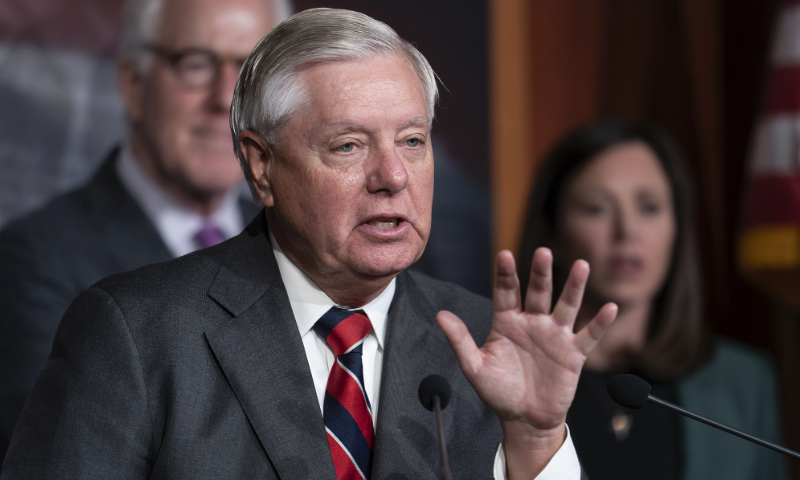If we take a closer look at what has deeply disturbed Graham, making him feel “extremely uneasy,” it becomes even more evident. The trigger for this unease was a sensationalized “disclosure” by the US media outlets, claiming that China informed the US last month about its intention of reunification, though the specific timing has not yet been decided. The mere mention of the phrase “reunification” seems to have jolted many Washington elites, including Graham, leaving them unable to accept it and treating it as a momentous new development. This reaction reveals an inherent reflex among them, indicating that they fundamentally do not wish for China’s reunification.
China must be and will be reunified. Is this some kind of secret? Does it require US media outlets to “expose” this? Is it necessary for some politicians in Washington to appear so surprised and flustered? China has consistently pursued the prospect of peaceful reunification with the utmost sincerity and effort. Simultaneously, we make no commitment to renounce the use of force, but regardless of the means, the ultimate goal is the complete reunification of the country. This has been China’s established policy for decades, a transparent and straightforward strategic approach, and above all, it resonates with the collective national sentiments of over 1.4 billion Chinese people. How is it that politicians like Graham in the US feel “uneasy” about it? They simply do not have the qualifications to feel “uneasy” about China’s national matters.
Do American politicians really care about the future and destiny of Taiwan and the people on the island? Absolutely not. Just three days before Graham advocated for “sanctions from hell,” he criticized the proposed aid package supported by the Democratic Party, stating that he “will not help Ukraine, Taiwan or Israel until we secure a border that’s been obliterated.” In plain terms, he is using these issues as leverage against the Democratic Party. For these politicians, their political self-interest takes precedence over everything else, and the actual existence or location of Taiwan is essentially irrelevant to them.
The only thing reflected by this incident is probably the profound ignorance of many American politicians regarding Taiwan’s affairs. It seems as if they have just become aware of China’s consistent policies and determination over the past few decades through “media revelations,” treating it as if they’ve discovered a new continent. This raises serious doubts about how many members of the US Congress can accurately point out Taiwan’s geographical location on a map. Over the years, American politicians have indulged in numerous absurd statements and speculations about China, whether it’s claiming that China has a “2,000-year plan to destroy America,” or posing ludicrous inquiries such as whether TikTok automatically connects to Wi-Fi. Their professional competence falls far short of expected standards. Given this group of people, no viewpoint they express should come as a surprise.
However, for someone like Graham, a “veteran anti-China figure” who has been in Congress for decades, is he genuinely ignorant? It’s doubtful. If it’s not ignorance, then it’s extreme malice. They are more likely to use every instance of public attention to demonize China, making every effort to confuse the American public’s perception, thereby attempting to mislead the entire country’s foreign policy. Taiwan is not Hawaii or Alaska; it is a part of China, not the US. Some US lawmakers now talk about “China’s reunification” as if China is about to invade the US. However, the real danger for the US lies not in China’s reunification efforts but in these arrogant and uninformed lawmakers.
The term “sanctions from hell” may sound intimidating, but do Graham and others genuinely believe it will scare China? Do they really think China will be deterred in the Taiwan question due to the fear of “sanctions from hell”? The Chinese people will dismiss such notions with a contemptuous smile. The narrative of American lawmakers about this 21st-century fantasy seems more like a political marketing slogan aimed at impressing US voters. US President Joe Biden has explicitly stated on numerous occasions that he does not support “Taiwan independence,” and the US has reiterated that its “one-China policy” remains unchanged. Therefore, offering explanations to China for threats like those from Graham, expressing apologies for harming the collective sentiments of the Chinese people, and ensuring commitments are fulfilled is what the US should do.




